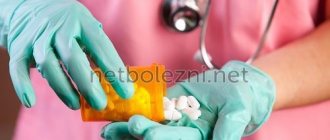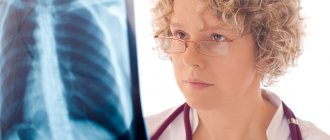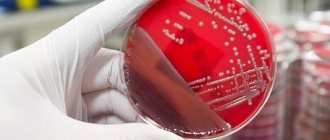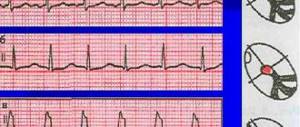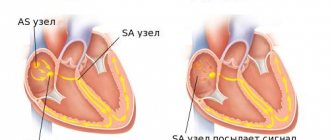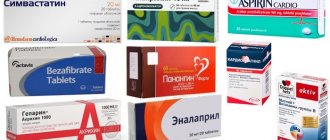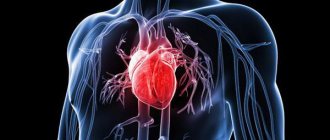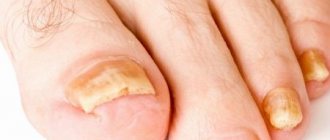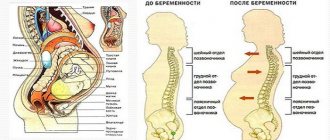Heart pills are especially important for people who already have problems with the cardiovascular system.
In some cases, available tablets can play a life-giving role. But their absence at the most needed moment most often ends in tragedy. Almost every person encounters such a concept as pain in the heart area at least once in their life. When chest pain appears, the overwhelming majority of patients immediately take the most common and inexpensive medicine for heart pain, which is in every medicine cabinet - Validol.
This drug, as a rule, has no side effects and can be used without a doctor's prescription, but it has a limited range of indications for use.
These heart pills will help if pain is caused by emotional overstrain (stress, hysteria), neurocirculatory dystonia or neurosis. If pain in the heart area is caused by other reasons, including angina pectoris, Validol will not have the expected analgesic effect, but will not worsen the condition. Attention. Other heart medications are not as safe and have a clearly limited list of indications and contraindications for use.
In order to avoid serious side effects from the use of the medicine, all cardiovascular drugs must be taken strictly as prescribed by the attending physician. Self-medication can lead to serious complications and be dangerous not only to health, but also to life.
Causes of pain in the heart area
In children and adolescents, heart pain can be caused by:
- dysplastic cardiopathy;
- neurocirculatory dystonia of the cardiac type;
- arterial hypertension;
- myocardiopathy;
- myocarditis, endocarditis , rheumatic carditis and acquired heart defects.
In middle-aged and elderly patients, pain is most often associated with:
- atherosclerosis of the coronary arteries;
- coronary heart disease;
- angina pectoris;
- acute coronary syndrome;
- myocardial infarction;
- chronic heart failure.
What types of heart medications exist and what medications are included in them?
Which pills to take for heart pain, when and in what dosage are decided by a cardiologist based on the diagnosis. Self-treatment can only temporarily numb the pain.
A nitroglycerin tablet placed under the tongue can stop an acute attack. But if the pain does not subside, then this is a reason to consult a doctor.
ACE inhibitors. A list of medications whose names end in –adj: enalapril, lisinopril, captopril, perindopril. They are able to delay the production of angiotensin converting enzyme, which affects the narrowing of blood vessels. These are the main drugs for the heart.
By preventing vasospasm, they reduce high blood pressure, which increases cardiac workload.
ACE inhibitors are prescribed to patients who have already suffered an acute myocardial attack so that the heart, weakened by the disease, can better pump blood through the vessels. Pursuing a similar goal, they help people suffering from heart failure.
Beta blockers are medications whose action is aimed at reducing the strength and frequency of heart contractions. As a result, pressure decreases and the load on blood vessels and the heart decreases.
Extracardiac causes of pain
Heart pain can also be caused by non-cardiac causes. Often, periodic, stabbing pains can be associated with severe scoliosis or osteochondrosis (cervical and thoracic). Pain in the heart area can also appear with myositis, intercostal neuralgia, esophageal stenosis, gastric ulcer, gastroesophageal reflux disease, pleurisy, etc.
Due to the variety of causes of pain, all heart pills, including drugs to improve heart function (Riboxin, Elkar, Cardonat - drugs for correcting metabolic processes) should be prescribed only after a comprehensive examination and identification of the cause of the pain syndrome.
Heart pills that correct metabolic processes have virtually no contraindications or side effects, but their use without prior examination can mask the progression of the underlying disease that caused heart pain.
For what symptoms should you urgently call a doctor?
Cardiologists say that in approximately 30% of cases, ambulance calls with complaints of pain in the heart actually turn out to be signs of spinal pain projected to the chest area. We are talking about diseases such as:
- intercostal neuralgia,
- radicular syndrome,
- radiculitis,
- myositis,
- osteochondrosis.
Such pains differ from heart pains in that they subside or intensify when changing body position, as well as when coughing, taking a deep breath, bending forward, etc. It is impossible to find the point where pain is concentrated in heart diseases, but in other diseases it is possible.
Doctors advise calling a doctor if there is a sudden appearance of burning, pressing or squeezing pain in the chest or left half, which can radiate to the arm, shoulder blade, neck or upper abdomen. The attack can last from 3 to 5 minutes and is accompanied by:
- interruptions in heart function,
- shortness of breath and lack of air,
- dizziness,
- severe weakness
- one-time vomiting.
Who to contact if you have pain in the heart area
According to WHO statistics, pathologies of the cardiovascular system are the most common diseases in the modern world and occupy a leading position in the structure of the main causes of mortality.
Timely seeking qualified medical care can significantly reduce the risk of developing severe complications and improve the quality and length of life. A cardiologist should treat cardiovascular pathologies. All drugs for the heart are prescribed strictly after a comprehensive examination, including taking an anamnesis, examination, auscultation, determining the boundaries of the heart (percussion), measuring blood pressure, studying the results of an ECG, if necessary, Echo-CG and 24-hour Holter monitoring are also examined, etc.
To clarify the diagnosis, a general and biochemical blood test, lipid profile and coagulogram are studied. If indicated, an analysis is performed for C-reactive protein , ASLO ( antistreptolysin-O ) and rheumatic tests.
Important. If acquired heart defects, aneurysms, or severe ischemic heart disease requiring bypass are detected, further treatment should be agreed upon with a cardiac surgeon.
If cardiac causes of pain are excluded, treatment should be carried out:
- neurologist (neurocirculatory dystonia, neuroses, osteochondrosis, intercostal neuralgia, myositis);
- vertebrologist (advanced osteochondrosis);
- gastroenterologist (gastroesophageal reflux disease, gastric ulcer);
- surgeon (esophageal stenosis).
Traditional medicine and heart pain
If you have heart disease, you should not self-medicate. Traditional medicine recipes should be used only under the supervision of a doctor.
- Tincture to stimulate the heart: leave 100 g of lovage root in 400 g of edible alcohol for two weeks. Drink a tablespoon before meals 3 times a day.
- Lemon peel improves heart function. It is beneficial to drink tea with a slice of lemon and chew lemon peel.
- Peppermint strengthens the myocardium. To prepare a decoction, you need to do this: take a teaspoon of herbs, pour a glass of boiling water and leave. Drink daily half an hour before breakfast.
- You can make an infusion: pour 1.5 cups of boiling water over a tablespoon of valerian roots and leave for a couple of hours. Drink one tablespoon 3 times a day.
- For heart weakness, you can prepare a decoction from a mixture of herbs. Mix one part each of lemon balm and yarrow, valerian root, add two parts of anise. Infuse a tablespoon of the mixture in a glass of boiling water. Drink 2-3 times during the day.
- You can take mumiyo according to the regimen recommended by your cardiologist.
- You can make and drink tea from violet flowers.
- Drinking pumpkin juice with a spoon of honey at night helps.
- You can make a decoction of hawthorn fruits and drink it like weak tea.
Heart medications. List
Drugs that affect the cardiovascular system are divided into:
- Cardiological, including classes: cardiac glycosides (digitalis preparations - Digoxin, Lanatoside C; strophanthin glycosides - strophanthin G; lily of the valley preparations - Korglykon);
- antiarrhythmic drugs of classes 1 and 3 (Procainamide, Lidocaine, Mexiletine, Propafenone, Amiodarone, Dronedarone);
- non-glycoside cardiotonic drugs (Dopamine, Phenylephrine, Dobutamine, Epinephrine, Levosimendan);
- vasodilators (nitrates (Nitroglycerin), isosorbide dinitrate (Nitrosorbide), isosorbide mononitrate (Mononitrosid), molsidomine (Sidnopharm);
Beta blockers
Most functions of the cardiovascular system are regulated by the hormone of the adrenal cortex - adrenaline (epinephrine). It has the following biological effects:
- Increased strength of heart contractions.
- Spasm of blood vessels.
- Increased heart rate and intravascular pressure.
- Conversion of glycogen to glucose.
- Dilates the bronchi.
- Increases the pain sensitivity threshold of the nervous system.
Effects of adrenaline
Adrenaline is a biologically active substance responsible for the body’s adaptation under stress, regardless of its etiology.
In the vessels and conduction system of the myocardium, a huge number of receptors are localized, for epinephrine, they come in two types:
Pills for heart pain
Nitroglycerine
Patients diagnosed with angina pectoris should always have Nitroglycerin in their first aid kit.
This is a drug that is part of the group of organic nitrates, which has a pronounced antianginal and antispasmodic effect. Due to the expansion of peripheral veins, after taking nitroglycerin, the load on the heart decreases, the myocardial oxygen demand decreases (due to this, the severity of ischemia decreases), and the vascular component of the pain syndrome is eliminated. In some patients, due to the rapid dilation of cerebral blood vessels, nitrate headache may occur. In order to relieve it, it is recommended to take the Validol tablet.
These heart pain pills should be taken intermittently. With prolonged use, addiction to nitrates may occur. After a break in treatment, sensitivity to nitrates is restored. Also, to prevent addiction, heart medicine should be used at an interval of 12 hours (at least eight, for severe angina). It is preferable to take it at night.
For severe angina with frequent attacks, retard tablets are used, that is, they have a prolonged effect.
Attention. The effect of using Nitroglycerin during an attack of angina appears within 2 minutes after taking the tablet. Intractable pain will indicate myocardial infarction and is an indication for urgently calling an ambulance.
Sydnopharm
These are cardiac tablets that have a vasodilating (vasodilating), antianginal, analgesic and antiplatelet (prevention of blood clots) effect.
The heart medicine is able to dilate blood vessels affected by atherosclerosis (if they are capable of dilatation), reduces the need for oxygen in the heart muscle and the risk of blood clots. Heart medications for older people, with long-term use, increase endurance during physical activity, reducing the risk of vascular spasm.
Unlike nitrates, molsidomine (the main active ingredient of Sidnopharm) does not develop addiction with prolonged use. The effect of the tablets begins 20 minutes after administration.
These heart pills can be effectively used for the treatment of coronary artery disease and the prevention of angina attacks, as well as in the treatment of chronic heart failure.
Attention! Sidnopharm is not used to relieve an acute pain attack; it is contraindicated in cases of myocardial infarction, acute (shock) circulatory failure, severe arterial hypertension and during treatment with PDE-5 inhibitors.
Types of drugs
Pain in the heart can be weak and strong, long and short, cutting, pulsating or pressing.
In each case, you should take the appropriate tablets.
All medications that are successfully used in cardiology are divided into certain groups:
- nitrates – nitroglycerin, derivatives based on it,
- sorbitol – emergency medicines for heart pain;
- antioxidants and antihypoxants - a group of heart medications prescribed to patients under the age of 50;
- potassium and magnesium preparations. Regulate contractions of the heart muscle;
- medicines for complex treatment of ischemic heart disease
- beta blockers;
- calcium antagonists – selective blockers;
- sartans, or angiotensin II receptor antagonists;
- ACE inhibitors;
- diuretics, or diuretics, are medications that help remove excess salt and fluid from the body and lower blood pressure;
- combination drugs.
Most often, medications for heart pain are prescribed for heart attack, angina, and coronary artery disease. These drugs are divided into several types depending on the nature of their effects:
- Peripheral vasodilators (including nitrates).
- Calcium channel blockers.
- Cardiac glycosides.
- Beta blockers.
Peripheral vasodilators
These drugs act on the smooth muscles of small vessels and thereby dilate them. Sublingual (under the tongue) tablets work very quickly (within two minutes) because they immediately enter the bloodstream. They are divided, depending on the type of vessels, into the following groups:
- dilating venules - nitrates, nitrites, molsidomine;
- dilating arterioles - diazoxide, hydralosine, potassium channel activators, minoxidil;
- dilating both venules and arterioles - sodium nitroprusside, isosorbide dinirate.
It is usually customary to distinguish a group of nitrate-based tablets, which are classified according to their chemical composition:
- Nitroglycerin, Sustak, Nitrocor;
- Monosan, Pentacard, Monizid, Pentrol;
- Cardiket.
The most famous and widely used throughout the world is nitroglycerin, which has proven itself to be an effective remedy for relieving angina attacks.
Another medicine that has shown itself well is Cardiket. It is a drug with long and stable action.
Quickly increases the lumen of the vessel by relaxing the muscles of the wall, thereby reducing the load on the heart. The effect occurs approximately 20 minutes after administration.
Cardiket is used for long-term treatment of cardiac ischemia, chronic heart failure, for the prevention of angina pectoris and secondary infarctions, but it cannot stop angina attacks.
Calcium channel blockers
This is a very large group of cardiac drugs that differ in some properties, but have the same mechanism of action. They have been used since the 60s of the last century to treat cardiac ischemia and reduce the frequency of angina attacks. Another name for them is calcium antagonists. The following tablets are used to relieve pain due to angina pectoris:
- with verapamil hydrochloride – Verapamil, Lekoptin, Veracard;
- with benzotheazepine derivatives - Diltiazem, Cardil, Diacordin, Angizem.
Cardiac glycosides
To relieve heart pain, medications made from digoxin, a glycoside contained in the foxglove plant, are used. These include:
- Digoxin,
- Digikor,
- Gitoxin,
- Celanide,
- Isolanide,
- Medilazide.
Beta blockers
Some types of beta blockers are used to relieve heart pain. By reducing the number of heart contractions, they reduce the need for oxygen in the heart muscle. Thanks to them, survival after a heart attack increases by 20%, and the frequency of secondary heart attacks decreases. This group includes drugs whose active ingredient is metoprolol:
- Metoprolol,
- Vasocardin,
- Betalok,
- Corvitol,
- Serdol,
- Nebivolol,
- Lopressor.
Pain in the heart is observed in various cardiac pathologies. Different drugs may be indicated in different cases.
For coronary heart disease, calcium channel blockers, drugs from the group of nitrates with antiarrhythmic action and beta-blockers are prescribed. Nitrates dilate blood vessels and relieve spasms.
Calcium antagonists and beta blockers reduce heart rate, which usually increases with excess adrenaline, eliminate oxygen starvation due to blood flow to the heart, and as a result of these actions the pain goes away.
Adrenaline blockers may be indicated for extrasystole, tachycardia and angina pectoris, accompanied by spasm of small vessels.
When a doctor hears from a patient the words about pain in the heart area “like needles,” first of all he assumes cardiac neurosis - a type of vegetative-vascular dystonia, a disturbance of nervous tone and nervous activity.
In such cases, the standard advice you can get is to take valerian, keep your composure and be patient. The body indicates problems with the nervous system.
Stress can cause not only emotional, but also physical changes; adrenaline is released, which is not spent on physical muscle work, finding its “application” in another area. In this case, it is necessary to either completely relax or, conversely, physical tension.
In addition to standard medications (Corvalol, Validol, and so on), there are more precise medications for the course of treatment that support heart function. Below is a table that describes groups of drugs and their prominent representatives.
This is not a complete list of medications that are used for heart diseases. It is not enough to just know the name and for what symptoms they are used - before taking it, you need to study the instructions in detail and all possible side effects from using the drug.
Medicines for arrhythmia
Antiarrhythmic heart pills, list:
- Amiodarone;
- Cordarone;
- Cardiodarone;
- Multaq;
- Ethacizin;
- Myorhythmil.
Attention. All antiarrhythmic drugs for the heart have a strictly limited list of indications, as well as an extensive list of contraindications for use. Self-prescription, as well as adjustment of the dosage and frequency of administration established by the attending physician, is fraught with severe side effects from therapy.
During treatment with antiarrhythmic drugs, it is prohibited to take erythromycin, azithromycin, spiramycin, moxifloxacin.
Amiodarone
Belongs to the third class of antiarrhythmic drugs. It is used to prevent relapses of attacks of ventricular and supraventricular tachycardia, ventricular fibrillation, as well as in the treatment of supraventricular tachycardia and in the complex therapy of coronary artery disease. The drug is prescribed only for documented heart rhythm disturbances.
Attention! These heart pills are contraindicated for sinus bradycardia, sinoatrial block, AV conduction disorders, thyroid diseases, and sinus node weakness.
Not prescribed in combination with other antiarrhythmic drugs of class 3 and 1a.
Drugs for the treatment of heart failure
If symptoms of cardiac decompensation occur, drugs from the group of cardiac glycosides are prescribed.
Even taking into account the fact that all drugs are made from plant materials (various herbs), their incorrect use and incorrect calculation of dosage can lead to severe intoxication.
Release form: tablets, drops, ampoules. Intravenous use only in emergency situations.
The most famous drugs:
- Digoxin;
- Celanide;
- Isolanide;
- Gomphocarpine;
- Erizimin;
- Korglykon.
The main differences between the drugs are the rate of absorption in the body, the duration of the effect, and removal from the body. This type of drug stays in the body for a long time, so most often the doctor prescribes it along with diuretics.
Medicines for the heart. Prevention
The following drugs are used to prevent cardiovascular diseases:
- containing plant components and having antianginal, metabolic, cardiotonic and antihypertensive effects (Pumpan, Karvelis);
- drugs to strengthen the heart with cytoprotective, anti-ischemic and metabolic effects (Riboxin, Elcar, Meldonium, Cardonate, Mildronate, etc.);
- vitamins for the heart in tablets (multivitamin complexes containing vitamins B, A and E);
- potassium and magnesium for the heart: Panangin, Asparkam tablets;
- polyunsaturated fatty acids (omega-3, fish oil).
Attention. Back in the 70s and 80s of the last century, older people used ATP and cocarboxylase (intramuscular) to prevent cardiac activity. They write that ATP and cocarboxylase, as well as Meldonium, are useless. There may also be a psychological effect, since the results of use are positive. Moreover, the price is cheap.
Tablets for arrhythmia
Of the drugs in this group, the most commonly prescribed are panangin and asparkam, which are recognized by doctors as the best drugs that affect cell metabolism. Doctors often call them a “vitamin” for the heart.
In fact, this is true - potassium in combination with magnesium are microelements, the normal content of which inside cells, including myocardial cells, contributes to good intracellular metabolism.
Thus, being involved in intracellular metabolism, potassium and magnesium play an important role in regulating contractions of the heart muscle. In addition, when administered intravenously, potassium can slow down the heart rate during tachycardia or restore it during arrhythmia.
Indications:
- Chronic heart failure,
- Atrial fibrillation,
- Treatment of tachycardia,
- Taking cardiac glycosides (digoxin),
- With low levels of potassium and magnesium intake from food in order to strengthen the heart muscle.
Diuretics (diuretics) help remove excess fluid from the body, thereby reducing blood pressure, swelling and shortness of breath. Therefore, they are used for hypertension and heart failure.
Examples of diuretics often used for heart disease are veroshpirone, indapamide, furosemide, hydrochlorothiazide, torsemide.
Antiarrhythmic drugs include drugs from various groups. For example, these include beta blockers, calcium channel blockers, digoxin.
Other antiarrhythmic drugs include:
- amiodarone;
- flecainide;
- procainamide;
- propafenone;
- sotalol.
The purpose of using these drugs is to restore normal heart rhythm or normalize pulse rate.
Potassium and magnesium are microelements necessary for the heart and the entire body. With their deficiency, the risk of developing heart rhythm disturbances and atherosclerosis of the coronary arteries increases. Very often, a lack of potassium and magnesium is observed when using diuretics, which stimulate their excretion in the urine.
Preparations containing a combination of potassium and magnesium - panangin, asparkam - are very popular.
These drugs are designed to improve metabolism in heart cells and protect them from the negative effects of lack of oxygen. They are often prescribed for coronary heart disease, heart failure, cardiomyopathies, angina pectoris, and myocardial infarction.
However, most of these drugs do not have a scientifically proven positive effect on the functioning of the cardiovascular system, prognosis and life expectancy in cardiac patients.
Most clinical guidelines in Europe and the USA do not recommend their use for heart disease.
The most popular metabolic drugs are trimetazidine (Preductal), meldonium (Mildronate), thiotriazoline and riboxin.
It should be noted that the European Medicines Agency allows the use of trimetazidine to treat angina if other drugs cannot control the symptoms of this disease.
okardio.com
Nitroglycerine
A drug from the nitrate group that dilates blood vessels (mainly veins). It was discovered in the 19th century and is used for angina attacks to this day. Nitroglycerin is the most effective drug that quickly relieves heart pain and allows the patient to wait for more thorough and targeted medical care.
This medicine relaxes the vascular wall, which leads to the expansion of the lumen of the veins. Less blood enters the heart and flows out more easily. A larger volume of blood enters the muscle itself. All this reduces the myocardium’s need for oxygen, improves its nutrition, and reduces the number of heart contractions.
Nitroglycerin is well absorbed through the oral mucosa, so it is produced in the form of sublingual (sublingual) tablets, capsules that need to be bitten in the mouth, or a spray.
Validol
Many believe that Validol can be effective in case of a heart attack. This is a dangerous misconception!
This drug has only a calming, distracting effect. Its effect is rather psychological. Therefore, if Validol helps you with chest pain, the attacks are associated with emotional and mental stress and are of a neurological nature.
In case of a true heart attack (angina or arrhythmia), you can take this remedy together with Nitroglycerin, which will ensure a milder effect of the latter.
Sedatives
You may experience palpitations or irregular heartbeats. The pain may be severe or less pronounced. In this case, the person needs to ensure peace and air flow (unbutton clothes). Holding your breath and coughing can normalize the rhythm. You can also put your face in cold water.
The list of drugs used to treat the heart includes drugs from the following groups:
- beta blockers;
- ACE inhibitors (angiotensin converting enzyme);
- aldosterone antagonists;
- Ca channel blockers (calcium antagonists);
- diuretics;
- cardiac glycosides.
For heart disease, medications are prescribed to reduce the risk of blood clots. To reduce blood viscosity and reduce the risk of blood clots, patients are advised to take the anti-inflammatory drug aspirin daily.
Cardiomagnyl is a fairly safe product for daily use containing aspirin. In addition to aspirin, it contains magnesium hydroxide, which protects the gastric mucosa from the effects of aspirin.
Cardio-Magnyl tablets in the shape of a heart are prescribed for the treatment of the heart in the 2nd trimester of pregnancy, for the elderly, used for diabetes, obesity, and to prevent a recurrent heart attack.
To maintain the heart, drugs with a cardioprotective effect are taken, without specifying the mechanism of action, a list of tablets in alphabetical order:
- Inosine (Riboxin);
- Cocarboxylase;
- Coenzyme Q10;
- L-carnitine;
- Meldonium;
- Perhexiline;
- Ranolazine;
- Trimetazidine;
- Phosphocreatine;
- Etomoxir.
Not all drugs from this list are approved for heart treatment in the USA and Europe; some of the names are not found in the prescriptions of foreign cardiologists, either in tablets or in injections. Drugs with unproven effectiveness in the treatment of heart disease include carnitine, taurine, coenzyme Q10, and mildronate.
Cardioprotectors are actively used as sports supplements. But you need to realize that when purchasing cardioprotectors L-carnitine, taurine, focusing on the price and colorful packaging, a person interferes with the work of the heart.
If you really need heart support, it is better to choose not those drugs that look prettier in the window, but to buy tablets prescribed by a doctor for the treatment of heart pain or the prevention of disease.
People suffering from heart pain will ease their condition if they take the medications prescribed by their doctor correctly. There are certain principles that must be followed in cardiotherapy.
All tablets for heart pain are used in a strict dosage according to a specific regimen. Some drugs should be taken in the morning on an empty stomach, others in the evening. An overdose increases side effects or leads to collapse.
For example, the drug nitroglycerin, which relieves heart pain, and drugs of the nitrate group cause a sharp headache.
The compatibility of drugs should be taken into account. Cardiac adrenergic blockers are prohibited from being used with nitrates, diuretics, and alcohol-containing drugs. This can lead to heart rhythm disturbances - arrhythmia, tachycardia, bradycardia.
For heart pain, some tablets have contraindications for use. These include, first of all, the period of pregnancy, labor and breastfeeding, and age up to 18 years.
Contraindications when taking certain medications may include:
- renal or liver failure;
- arterial hypotension
- hypersensitivity to the drug;
- respiratory diseases;
- diseases of the gastrointestinal tract.
Self-administration of medications is unacceptable.
Basically, drugs for heart pain are indicated for angina pectoris, ischemia and myocardial infarction. Heart pills are divided into groups depending on their pharmacological action.
- Peripheral vasodilators (nitrate derivatives are also included here). The action of this group of drugs is aimed at expanding the smooth muscles of small blood vessels: arterioles and venules.
- Cardiac glycosides - directly relieve pain in the heart.
- Beta blockers - reduce the number of contractions of the heart muscle, thereby reducing the heart's need for oxygen. These drugs increased survival after myocardial infarction by 20% and significantly reduced the incidence of recurrent heart attacks.
- Calcium antagonists (calcium channel blockers). We are talking about a wide group of cardiac drugs that have different properties and, at the same time, have the same mechanism of action. The tablets are indicated for the treatment of coronary heart disease and reducing the frequency of angina attacks.
Not all heart pills are equally effective for various diseases. Therefore, their use should be strictly under the supervision of the attending cardiologist.
- Nitroglycerine,
- Nitrocor,
- Sustak,
- Pentrol,
- Pentacard,
- Monosan,
- Monizid,
- Cardiket.
This is a list of nitrate derivative heart tablets. Nitroglycerin, which effectively relieves angina attacks, has gained worldwide fame.
Another well-proven drug is Cardiket. It has a lasting effect. The drug is indicated in the treatment of chronic heart failure and the treatment of cardiac ischemia, as well as as a prophylactic against angina pectoris and recurrent infarction. However, this drug cannot relieve an angina attack.
- Veracard,
- Verapamil,
- Lekoptin,
- Angezem,
- Diltiazem,
- Diacordin,
- Cardil.
These are drugs from the group of calcium antagonists, which are good for relieving heart pain due to angina pectoris.
- Gitoxin,
- Digoxin,
- Medilazide,
- Digikor,
- Isolanide,
- Celanide.
The basis of these tablets is a glycoside contained in digitalis. They are indicated for the relief of heart pain.
- Lopressor,
- Metoprolol,
- Nebivolol,
- Vasocardin,
- Serdol,
- Corvitol,
- Betalok.
These drugs, beta blockers, are also used to relieve heart pain.
High blood pressure can trigger an attack of arrhythmia and heart pain. Drugs recommended for relieving an arrhythmic attack reduce tension in blood vessels and normalize heart rhythm. The most polar of them:
- Karinaf - helps reduce the heart's need for oxygen, and, consequently, normalizes heart rate;
- Diroton - dilates blood vessels and quickly reduces blood pressure;
- Enap - normalizes heart rhythm.
Heart pills are far from the only remedy that can relieve pain, for example during an attack of angina.
Practice shows that drug therapy for cardiac and a number of other diseases can cause heart pain:
- Digitalis-based heart pills (cardiac glycosides) may cause tight chest pain;
- phenothiazine derivatives (Aminazine, etc.) - pain goes away quickly when the dosage is reduced;
- Isoniazid is an anti-tuberculosis drug that causes manifestations of angina pectoris, which disappear 2-3 days after stopping taking the pills;
- Impact doses of corticosteroids often lead to attacks of angina pectoris;
- Antimalarials (Rezokhin and others) cause heart rhythm disturbances and angina attacks.
People with cardiac diseases need to take heart pills recommended by their doctor, and as an aid, you can turn to folk recipes. In case of sudden, severe pain in the heart, it would be wise to call an ambulance.
nmedicine.net
Tablets intended for the treatment of heart disease may have a number of contraindications:
- Validol: severe arterial hypertension, complications after myocardial infarction in the form of cardiogenic shock.
- Nitroglycerin (and all nitrates): impaired cerebral circulation, high pressure inside the skull, shock, glaucoma (angle-closure), low blood pressure.
- Cardiac glycosides: disturbance of the rhythm of the cardiac ventricles, atrioventricular block (1-2 degrees), dysfunction and weakness of the sinus node, tachycardia-bradycardia syndrome, stenosis of the mitral valve or aorta, hypertrophic changes in the myocardium.
A very common remedy, like a “vitamin” for the heart. Potassium and magnesium are microelements that help improve intracellular metabolism and play a key role in regulating contractions of the heart muscle. The most well-known drugs of this type are Panangin and Asparkam.
In what cases is it recommended to take potassium and magnesium:
- For chronic heart failure;
- For treatment or preventive measures for tachycardia (helps reduce rapid heart rate in tachycardia patients);
- To maintain the heart muscle.
A number of contraindications:
- Serious kidney failure;
- Hyperkalemia;
- High blood pressure, weakened blood vessels in the brain.
This type of heart medication is recommended only for long-term use, purely for preventive purposes.
Often, a person may unknowingly harm himself by taking a certain drug. Using the table, it will be shown and discussed which drugs are effective as emergency aid, what form of release exists, how and in what dosage to take correctly, and what the daily intake limit is.
| Drug name | Release form | Dosage | Limit per day |
| Corvalol | Drops | No more than 20 drops per glass of water | No more than two uses |
| Validol | Pills | 1 tablet for an adult (for acute pain, 2), half a tablet for a child (for acute pain, a whole tablet) | No more than three applications per day |
| Nitroglycerine | Pills | One or two tablets | No more than three applications per day |
| No-shpa | Tablets, intramuscular injections | One tablet for internal use, if an injection - one injection intramuscularly | Two to three times a day |
The table shows medications that must be present in every first aid kit. If a doctor prescribes a medicine that has individual indications and dosage, he is obliged to inform about its correct use, for what disease to take it, dosage and all side effects.
Patients diagnosed with angina pectoris should always have Nitroglycerin in their first aid kit. This is a drug that is part of the group of organic nitrates, which has a pronounced antianginal and antispasmodic effect.
Due to the expansion of peripheral veins, after taking nitroglycerin, the load on the heart decreases, the myocardial oxygen demand decreases (due to this, the severity of ischemia decreases), and the vascular component of the pain syndrome is eliminated.
In some patients, due to the rapid dilation of cerebral blood vessels, nitrate headache may occur. In order to relieve it, it is recommended to take the Validol tablet.
- Amiodarone;
- Cordarone;
- Cardiodarone;
- Multaq;
- Ethacizin;
- Myorhythmil.
Attention. All antiarrhythmic drugs for the heart have a strictly limited list of indications, as well as an extensive list of contraindications for use. Self-prescription, as well as adjustment of the dosage and frequency of administration established by the attending physician, is fraught with severe side effects from therapy.
During treatment with antiarrhythmic drugs, it is prohibited to take erythromycin, azithromycin, spiramycin, moxifloxacin.
Amiodarone
Belongs to the third class of antiarrhythmic drugs. It is used to prevent relapses of attacks of ventricular and supraventricular tachycardia, ventricular fibrillation, as well as in the treatment of supraventricular tachycardia and in the complex therapy of coronary artery disease. The drug is prescribed only for documented heart rhythm disturbances.
Attention! These heart pills are contraindicated for sinus bradycardia, sinoatrial block, AV conduction disorders, thyroid diseases, and sinus node weakness.
Not prescribed in combination with other antiarrhythmic drugs of class 3 and 1a.
Ethacizin
Belongs to class 1c antiarrhythmic drugs. Used to treat patients with ventricular and supraventricular extrasystole or tachycardia, paroxysms (atrial fibrillation and flutter), as well as premature ventricular excitation.
The drug is contraindicated in patients with:
- impaired conduction (blockade);
- post-infarction cardiosclerosis;
- cardiogenic shock;
- acute coronary syndrome, heart attack (Etatsizin is prohibited from using for at least three months after a heart attack);
- LMLV (left ventricular myocardial hypertrophy);
- hypokalemia, hyperkalemia, hypomagnesemia;
- chronic heart failure;
- severe arterial hypertension;
- renal and liver failure.
Not used simultaneously with antiarrhythmic drugs of classes 1a and 1c.
Mioritmil
Mioritmil can be used for severe tachycardia (treatment of life-threatening tachycardias should be carried out in a hospital setting), severe ventricular and supraventricular tachycardia. The drug can be successfully used in a complex treatment regimen for coronary heart disease.
Attention! These tablets are not used to treat patients with sinus bradyarrhythmia, blockades, sinus node weakness, conduction disorders, or thyroid diseases.
It is prohibited to combine with antiarrhythmics of class 1a and 3.
The following drugs are used to prevent cardiovascular diseases:
- containing plant components and having antianginal, metabolic, cardiotonic and antihypertensive effects (Pumpan, Karvelis);
- drugs to strengthen the heart with cytoprotective, anti-ischemic and metabolic effects (Riboxin, Elcar, Meldonium, Cardonate, Mildronate, etc.);
- vitamins for the heart in tablets (multivitamin complexes containing vitamins B, A and E);
- potassium and magnesium for the heart: Panangin, Asparkam tablets;
- polyunsaturated fatty acids (omega-3, fish oil).
Attention: Older people back in the 70s and 80s of the last century used ATP and cocarboxylase (intramuscular) to prevent cardiac activity. They write that ATP and cocarboxylase, as well as Meldonium, are useless. There may also be a psychological effect, since the results of use are positive. Moreover, the price is cheap.
Here are a number of heart pills that can optimize blood counts:
- Cardonate;
- Milgamma;
- Neurorubin;
- Neurobex NEO;
- Neurobex Forte;
- Neuromultivitis;
- Magwit;
- Magne-B6.
Vitamins for the heart with tachycardia
Heart tablets containing vitamins are used for the following purposes:
- improving the functioning of the central nervous system (increasing stress resistance, treating neuroses, reducing emotional lability and, as a result, reducing the risk of developing a nervous attack);
- normalization of blood circulation;
- improving exercise tolerance;
- general strengthening of the body.
Typically, complexes of B vitamins are used for these purposes (often in combination with magnesium preparations or supplemented with glycine (has a sedative effect, normalizes sleep and improves performance).
Antioxidant complexes (Vitrum Antioxidant), preparations of coenzyme-10 (Kudesan), Omega-3 (have a general strengthening and hypolipidemic effect), preparations containing potassium and magnesium (Panangin) can also be used.
Treatment of coronary heart disease
To obtain effective therapeutic effects and eliminate signs of the disease, a complex of medications is taken.
They are divided into groups depending on the direction of action.
- means that help normalize blood circulation and relieve tachycardia - rapid heartbeat;
- medications that relieve the need for oxygen in cardiac tissue and muscles;
- antispasmodics - a group of medications aimed at eliminating attacks of spastic pain, which is one of the most unpleasant symptoms of cardiac pathology;
- sedatives or sedatives are used for sudden, persistent, short-term or long-term chest pain on the left side, caused by nervous overexcitation and stressful situations. Does not stop sudden heart attacks;
- “Vitamins for the heart” - tablets that improve the nutrition of the heart muscle;
- diuretics that help relieve swelling by removing sodium salts and excess fluid from the body. They are drunk together with potassium supplements.
Tablets containing microelements are prescribed to enhance nutrition of weakened heart muscle, strengthen the myocardium, and improve general condition.
Medicines based on microelements (panangin, asparkam) are used in complex treatment and for the prevention of diseases of the cardiovascular system. Panangin differs from asparkam in the presence of a protective shell.
Preparations containing a complex of microelements help strengthen the myocardium. They normalize metabolic processes in it and significantly improve the functioning of the heart muscle.
There are cardiac diseases for which heart pills and other means of drug therapy are powerless. These diseases can only be cured surgically:
- Congenital heart defects - detected in newborn babies immediately after birth using ultrasound;
- Acquired heart defects;
- Ischemic disease complicated by myocardial infarction;
- Heart rhythm disturbances - can cause ventricular fibrillation;
- Cardiac aneurysm is a common complication of myocardial infarction. Its rupture threatens with serious bleeding, often ending in the death of the patient;
- Heart failure.
How to support your heart
Mildronate
The main active ingredient of Mildronate is meldonium, which has a pronounced cardioprotective, anti-ischemic, antianginal and vasodilator effect.
The drug improves metabolic processes in cells, increases endurance during physical and emotional stress, increases performance, stimulates the immune system, reduces the need for oxygen in cells, improves cerebral circulation, protects cells and tissues from damage, increases the ability of the myocardium to contract, and also inhibits the formation of a necrotic zone with myocardial ischemia.
Important. Meldonium reduces the frequency of angina attacks in patients with coronary artery disease and can be used in the complex treatment of chronic heart failure.
Additionally, the drug can be used in patients after myocardial infarction to normalize the blood supply to the myocardium, its ability to contract, as well as to generally accelerate rehabilitation.
Patients' mistakes
Also read: What to do if your heart hurts?
Many people experiencing pain in the heart area immediately put validol under their tongue or drink Corvalol. These medications are still the most popular, although doctors have long said that they do not help with cardiac diseases.
Corvalol and valocordin act as calming agents for the nervous system for neuroses, irritability, insomnia, and increased heart rate. They help dilate blood vessels and improve blood supply to the heart, and chest pain can indeed subside. But for true heart pain they are useless. Moreover, with frequent use they can become addictive.
The same can be said about validol, which practically does not help with cardiac diseases and can only eliminate chest pain that arises in connection with neuroses. It slightly dilates blood vessels and calms, but is not effective for real heart pain. During an attack of angina, it can be taken together with nitroglycerin, which has a vasodilating effect. The latter can cause severe headaches, but validol can eliminate or alleviate them.
Nitrates
Medicines containing glycerol trinitrate. In its pure form it is an explosive substance, therefore it is used in the form of solutions of ethers or alcohols.
The main effect is the release of nitric oxide, which has a powerful vasodilator effect. Quickly relieves an attack of angina of any origin. The action develops quickly and lasts 20-30 minutes. Quickly absorbed from the oral mucosa. It is an emergency drug for coronary heart disease.
The most used forms for emergency relief of an attack are heart tablets and spray. There are prolonged forms under the trademarks “Nitrong” and “Nitrosorbide”.
Nitroglycerine
Prevention of pain attacks
Cardiologists recommend following the basic rules of prevention for everyone who suffers from cardialgia of various origins, the observance of which will preserve patients’ quality of life and prevent the progression of pathology:
- balanced diet;
- weight control;
- physical activity;
- dealing with stressful situations;
- constant monitoring of blood pressure, lowering it if necessary;
- regularly checking blood cholesterol levels;
- monitoring on an ongoing basis the concentration of glucose in the bloodstream;
- patients at risk for cardiovascular pathologies should take prophylactic blood thinners.
- annual medical examination.
Prevention is the best guarantee of healthy longevity.

